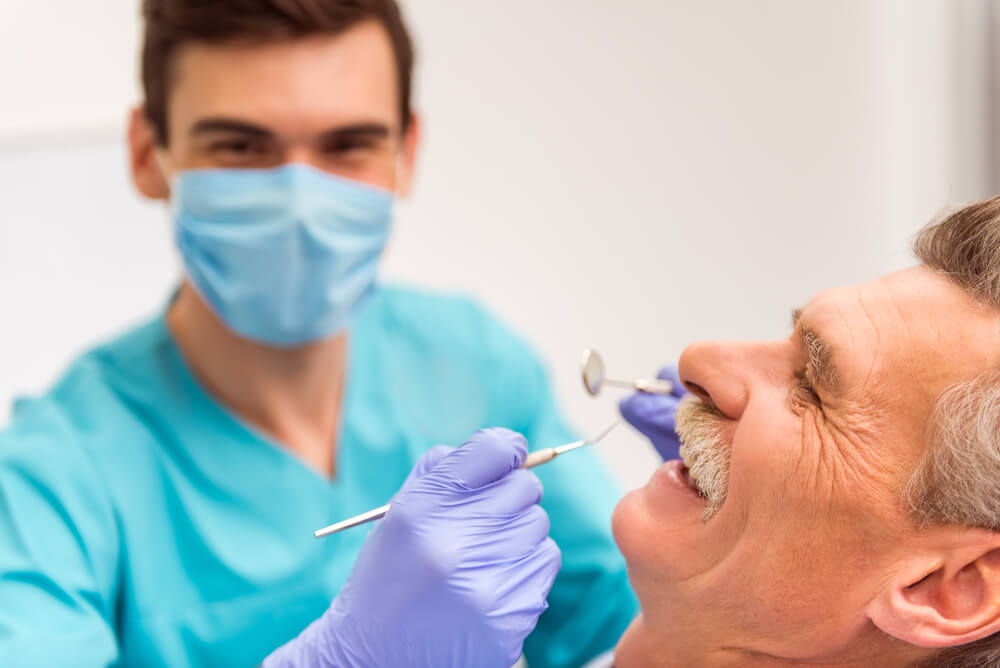In the dynamic world of dental health, the decision to opt for dental implants marks a significant step towards restoring your smile and confidence. While considering dental implant surgery, one may stumble upon various options, including intriguing choices like dental implants in Turkey.
Regarding dental implants, Turkey is popular due to its cost-effective nature. However, it’s imperative to delve into the finer details and understand why choosing a dental clinic in Australia for dental implant treatment might be more advantageous.
Introduction to Dental Implants: Understanding the Journey

Dental implants signify a substantial progression in dental healthcare, providing a robust and visually appealing remedy for tooth loss. Unlike traditional solutions like dentures or bridges, dental implants provide a more permanent and natural-feeling option. Before embarking on this transformative journey, it’s important to understand what dental implants are and what the process of getting them entails.
Understanding Dental Implants
Dental implants function as artificial tooth roots, typically constructed from titanium, and are surgically inserted into the jawbone to provide support for a replacement tooth or bridge. Their design closely resembles that of natural teeth, both in their functionality and aesthetics. This provides a dependable and enduring remedy for individuals who have lost teeth owing to decay, gum disease, or injury.
Initial Consultation and Assessment
The dental implant procedure commences with an initial consultation where your dental expert evaluates your oral health, discusses your requirements, and assesses your candidacy for dental implants. This evaluation may include dental X-rays or 3D imaging to examine your jawbone and adjacent teeth.
The Implant Procedure
- Preparation and Bone Grafting (If Necessary): In cases where the jawbone lacks adequate thickness or density, bone grafting may be necessary as a prerequisite for dental implant surgery. This process ensures that the implant will have a solid foundation.
- Implant Placement: During this surgical procedure, the dentist places the dental implant into your jawbone, beneath the gum line. This implant will serve as the new tooth root and is typically made of titanium.
- Healing and Osseointegration: Following the placement of the implant, a vital phase known as osseointegration initiates, during which the jawbone fuses with and bonds to the surface of the dental implant. This period, which may span several months, establishes a strong foundation for your new artificial tooth.
Attaching the Abutment
Once osseointegration is complete, an abutment – a small connector post – is attached to the dental implant. This post will securely hold the new tooth.
Choosing and Fitting the Artificial Tooth
After your gums heal, more impressions of your mouth and remaining teeth are made. These impressions serve as the blueprint for creating the crown, which is designed to resemble a natural tooth. The crown can only be installed once your jawbone reaches the necessary level of strength to support the new tooth effectively.
Recovery and Aftercare
Post-procedure care is crucial for the success of dental implants. This includes maintaining good oral hygiene, following a diet recommended by your dentist initially, and regular dental check-ups.
Long-term Care and Maintenance
Implants, like natural teeth, require routine dental check-ups and meticulous oral hygiene. The durability of your implants hinges on the level of care you provide. Familiarising yourself with these procedures and expectations will prepare you for a successful dental implant journey. With diligent maintenance, dental implants can offer an enduring solution, substantially enhancing both your oral health and overall quality of life.
The Surge in Dental Tourism: A Closer Look with an Australian Perspective

Dental tourism has become increasingly popular, with many Australians considering countries like Turkey for dental implants, attracted by the potential for reduced costs and the opportunity to travel. However, this trend warrants a deeper examination, especially from the perspective of Australian standards and practices in dental care.
Understanding the Appeal of Dental Tourism
One of the primary drivers of dental tourism is the perceived cost advantage. In countries like Turkey, the prices for dental implants and related procedures can be significantly lower than in Australia, making it an attractive option for those seeking affordable dental care.
The Travel Experience
Combining dental treatment with the opportunity to travel is another enticing factor. Patients often view it as a chance to experience a new culture and country while addressing their dental needs.
Evaluating the Risks and Considerations
While cost and travel are significant considerations, the quality of care should be paramount. Australian dental clinics are governed by rigorous standards, ensuring high-quality treatment and patient safety. In contrast, the standards and regulations in other countries, including Turkey, may vary and only sometimes match those in Australia.
Continuity of Care
Dental implant procedures often require multiple visits and follow-up care. In Australia, the continuity of care is ensured, with the same dental team overseeing all stages of the procedure. This continuity can be disrupted when opting for treatment abroad, potentially impacting the overall success and longevity of the implants.
Technological Advancements and Treatment Options in Australian Dental Implants
Australian dental clinics are at the forefront of incorporating advanced technology in dental treatments, especially in the field of dental implants. These technological advancements significantly enhance the precision, success rates, and overall patient experience. Understanding how these technologies are applied in dental implant procedures illustrates why Australia is often preferred for such complex dental treatments.
Cutting-edge 3D Imaging and Planning
Australian clinics frequently use 3D imaging technology, such as Cone Beam Computed Tomography (CBCT), to gain a detailed understanding of a patient’s oral anatomy. This high-resolution imaging allows for precise planning of the implant procedure.
Customised Treatment Planning
The detailed images obtained from 3D scans enable dentists to create a tailor-made treatment plan for each patient. This planning considers the optimal placement of implants, taking into account factors like bone density and the proximity to nerves and sinuses.
Computer-Aided Implant Surgery
Computer-aided design and manufacturing (CAD/CAM) technologies are widely used in Australian dental practices for dental implant procedures. This technology ensures a high level of accuracy in implant placement, reducing the risk of complications.
Minimally Invasive Procedures
The use of guided surgery techniques, assisted by these technological advancements, often results in less invasive procedures. This can lead to reduced pain and swelling post-surgery, and a quicker recovery time for patients.
Laser Dentistry in Implantology
Laser technology is increasingly being used in dental implant procedures for precise soft tissue management. This method offers benefits such as reduced bleeding, faster healing, and less postoperative discomfort.
Advanced Bone Grafting Techniques
In cases where patients require bone grafting before receiving implants, Australian clinics employ advanced materials and techniques. These include synthetic options and growth factors that promote bone growth, ensuring a strong foundation for the implant.
Teledentistry and Virtual Consultations
With the advent of teledentistry, initial consultations and follow-up appointments can often be conducted virtually. This is especially beneficial for patients in remote areas, ensuring they, too, have access to high-quality dental implant services.
The integration of advanced technology in Australian dental clinics has revolutionised the field of dental implants. From precise diagnostics and planning with 3D imaging to the use of CAD/CAM for implant surgery and prosthetics, these advancements contribute significantly to more successful outcomes, improved patient comfort, and a higher overall standard of care. This technological edge is a key factor in why many choose Australia for their dental implant needs, ensuring they receive the most modern and effective treatments available.
Technological Landscape in Turkish Dental Clinics

While Turkish dental clinics, especially those catering to dental tourists, are increasingly adopting modern technologies, there can be variability in the extent and currency of this technology.
Focus on Cost-Effectiveness
Turkish clinics might prioritise cost-effectiveness, which can sometimes mean the use of less advanced or older technology, compared to the cutting-edge technology often used in Australian clinics.
Dependence on Individual Clinic Capabilities
The level of technological adoption in Turkey largely depends on the individual clinic and its focus. Some high-end clinics in Turkey may have advanced technologies, but this is not uniformly the case.
Impact on Precision and Success Rates
Advanced imaging and digital planning in Australian clinics contribute to higher precision in implant placement, reducing the risk of complications and improving long-term outcomes.
Success Rates of Implant Procedures
The success rate of dental implants is closely linked to the quality of technology used during the procedure. Australian clinics, with their access to the latest technologies, generally report high success rates.
Customisation and Patient Satisfaction
The ability to customise implants with precision directly affects patient satisfaction. Australian clinics, leveraging advanced technology, are typically able to offer highly customised and patient-centric solutions.
In conclusion, while both Australian and Turkish dental clinics are evolving technologically, Australian clinics generally have more consistent access to state-of-the-art technologies.
This access ensures high precision in implant placement, customisation according to individual patient needs, and overall high success rates.
For patients considering dental implants, understanding these technological differences is key to making an informed decision.
Risk Mitigation in Complex Dental Procedures: The Australian Edge
In dental healthcare, particularly when it involves intricate procedures like dental implant placement and bone grafting, the proficiency and experience of dental professionals play a critical role. Australia’s dental sector stands out in this regard, offering a level of expertise and care that is essential for mitigating risks in these complex treatments. Let’s delve into the various aspects that underscore the importance of choosing Australian dental care for such procedures.
High Standards of Professional Training
Australian dental professionals undergo extensive and rigorous training. This includes years of academic study followed by practical training, ensuring they are well-equipped to handle complex dental procedures.
Advanced Treatment Planning and Execution
Australian dental clinics often employ the latest technology for diagnosis and treatment planning. This includes advanced imaging techniques that aid in precise implant placement, reducing risks associated with the procedure.
Quality of Materials and Equipment
Australian dental clinics typically use implants from reputable brands known for their quality. These implants are designed to be durable and biocompatible, reducing the risk of rejection or complications.
Managing Complications and Ensuring Patient Safety
Australian dental clinics adhere to stringent infection control protocols. This minimises the risk of post-surgical infections, a critical aspect when dealing with implants and bone grafts.
Cost Considerations in Dental Implants: The Long-Term Perspective

When evaluating the cost of dental implants, it’s pertinent to look beyond the price tag, especially when comparing the options between Australia and Turkey. While Australian dental implant costs may appear higher at first glance, a thorough understanding of what these costs entail and the long-term value they represent is crucial for making an informed decision.
Initial Cost vs Long-Term Value
In Australia, the upfront cost of dental implants typically includes not just the surgical procedure, but also comprehensive pre-surgical assessments, high-quality materials, and follow-up care.
Long-Term Investment
These costs should be viewed as a long-term investment in your oral health. High-quality dental implants can last a lifetime with proper care, potentially saving money in the long run compared to cheaper alternatives that require more frequent replacements or adjustments.
Quality of Materials and Equipment
Australian dental clinics commonly use top-grade materials for implants, such as high-quality titanium screws and advanced bone grafting materials. These materials are selected due to their durability, biocompatibility, and high success rates in dental implants. Additionally, the utilisation of cutting-edge equipment in Australian clinics plays a role in the overall cost. This advanced technology improves precision and the likelihood of a successful implant procedure, thereby reducing the chances of complications.
Travel and Accommodation Costs
One must also consider the added expenses of international travel, accommodation, and potential language barriers when seeking dental treatment abroad. These factors can add stress and additional costs to what is already a significant health decision.
Comprehensive Care and Aftercare Services
In Australia, the cost typically encompasses the entire process, beginning from the initial consultation and extending through to the final placement of the crown. This comprehensive approach ensures that patients receive consistent and quality care throughout their treatment.
Regular follow-up visits and aftercare services are often included in the cost. These services are crucial for monitoring the healing process and ensuring the success of the implant.
Regulatory Standards and Practitioner Expertise
Australian dental clinics operate under strict regulatory standards, which ensure high levels of patient safety and care quality. Compliance with these standards is factored into the overall cost.
Expertise of Dental Professionals
The cost also reflects the high level of training and expertise of Australian dental professionals. Patients are paying for the skills and experience of qualified practitioners who can handle complex cases and provide personalised care.
Legal Recourse and Insurance: Safeguarding Dental Implant Procedures in Australia

When it comes to dental implant procedures, especially those of a complex and expensive nature, such as full mouth implants, understanding the legal and insurance framework in place is crucial. In Australia, patients benefit from a robust legal and insurance system, providing a significant layer of protection and peace of mind. This aspect is particularly important in the context of dental healthcare, where the implications of procedural complications can be substantial.
Consumer Protection Laws in Australian Healthcare
Australian healthcare, including dental services, is governed by comprehensive consumer protection laws. These laws ensure that patients receive care that meets high safety and quality standards.
Right to Quality Care
Patients in Australia are legally entitled to receive medical and dental care that adheres to established professional standards. This includes the right to safe and effective treatment, such as dental implants, performed by qualified professionals.
Insurance Cover for Dental Procedures
Dentists in Australia are required to have professional indemnity insurance. This insurance acts as a safety net, offering protection for both dental professionals and their patients in the event of unexpected complications arising during the dental implant procedure.
Comparison with International Standards
When comparing these protections with those in countries popular for dental tourism, like Turkey, it becomes evident that the legal and insurance framework in Australia offers superior patient protection. This is a critical consideration for anyone weighing the pros and cons of undergoing dental procedures abroad.
The legal recourse and insurance protections available to patients in Australia play a pivotal role in the realm of dental implant procedures. These safeguards ensure that patients are not only protected legally and financially but also contribute to the overall high standard of dental care in Australia. This aspect is particularly crucial for patients considering major dental work, providing them with an added layer of security and confidence in the quality of care they will receive.
Conclusion
Choosing dental implants, whether it’s for a single missing tooth, multiple teeth, or full-mouth dental implants, is a major decision. While dental tourism to places like Turkey offers an alternative, the comprehensive benefits of undergoing dental implant treatment in Australia are evident. From the assurance of quality and safety to the convenience and reliability of follow-up care, Australian dental care stands out. When evaluating your choices, take into account not only the initial dental implant expenses but also the enduring advantages and assurance that accompanies getting dental implants in Australia.
Are you contemplating dental implants? Don’t allow uncertainty to hinder your decision. Contact us today to arrange a consultation. Our team is prepared to lead you through each phase of your dental implant adventure. Place your trust in our proficiency and dedication to top-tier care in order to rejuvenate your smile and self-assurance. Get in touch now and embark on the initial phase of a long-lasting solution for your dental requirements. Your path to a healthier, more confident smile commences here!
Note: Any surgical or invasive procedure carries risks. Before proceeding, you should seek a second opinion from an appropriately qualified health practitioner.
References:
https://www.fda.gov/medical-devices/dental-devices/dental-implants-what-you-should-know
https://www.mayoclinic.org/tests-procedures/dental-implant-surgery/about/pac-20384622#:~:text=During%20surgery%20to%20place%20the,implanted%20deep%20into%20the%20bone.
https://www.aihw.gov.au/reports/dental-oral-health/oral-health-and-dental-care-in-australia/contents/private-health-insurance
https://www.webmd.com/oral-health/what-to-know-about-dental-implant-complications-risks
https://canberradaily.com.au/exploring-the-advancements-in-dental-implant-technology/
https://my.clevelandclinic.org/health/treatments/21727-dental-bone-graft
https://www.colgate.com/en-us/oral-health/dental-visits/dental-tourism-5-risks-of-traveling-for-a-dental-procedure
